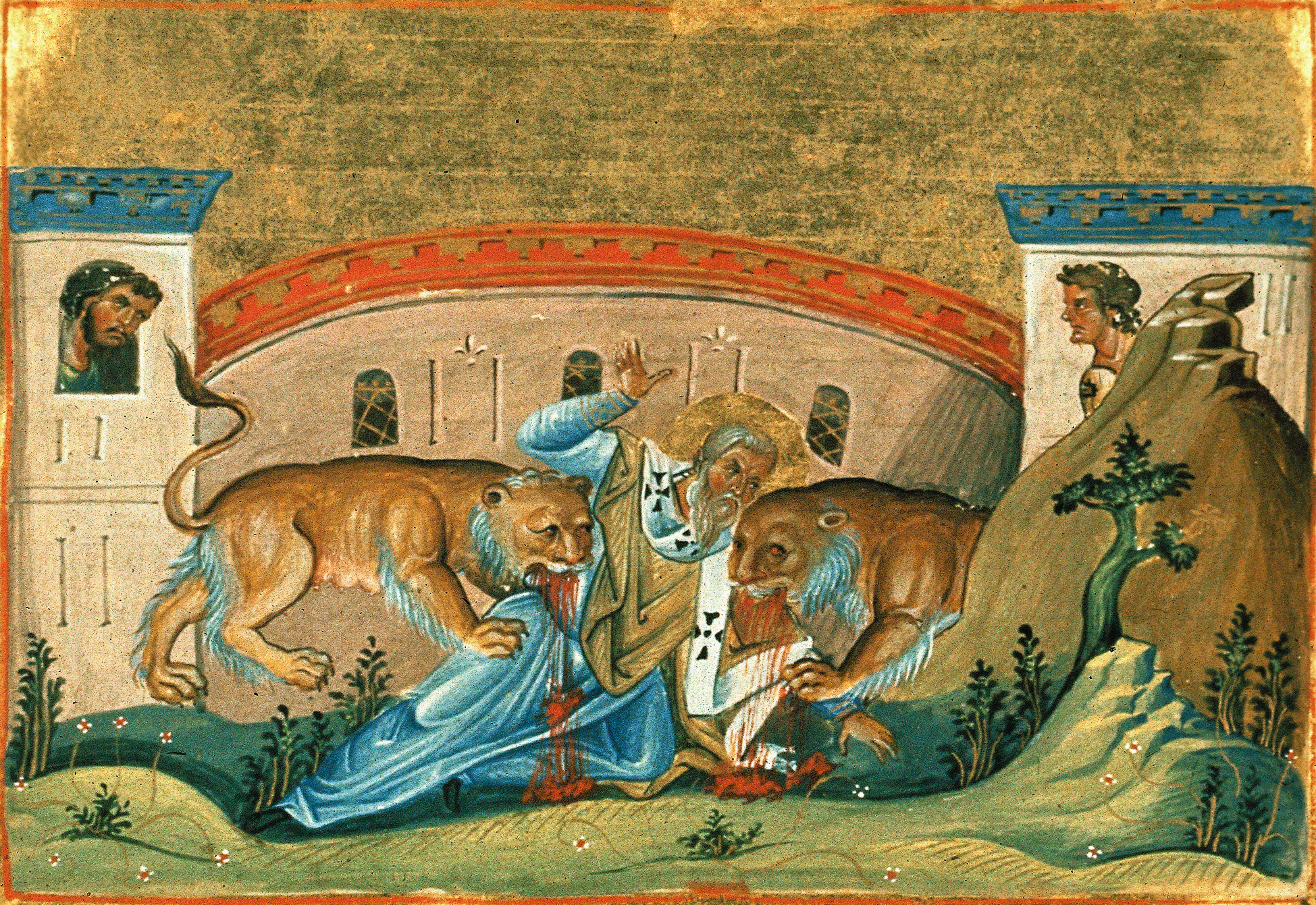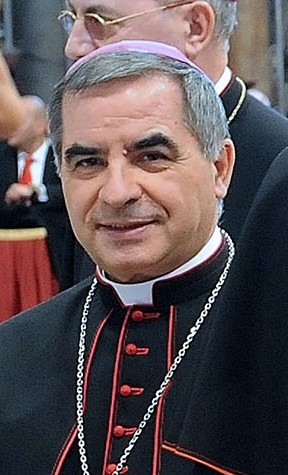|
Congregation For The Causes Of Saints
In the Catholic Church, the Dicastery for the Causes of Saints, previously named the Congregation for the Causes of Saints (), is the dicastery of the Roman Curia that oversees the complex process that leads to the canonization of saints, passing through the steps of a declaration of "heroic virtues" and beatification. After preparing a case, including the approval of miracles, the case is presented to the pope, who decides whether or not to proceed with beatification or canonization. History The predecessor of the congregation was the Sacred Congregation for Rites, founded by Pope Sixtus V on 22 January 1588 in the bull '' Immensa Aeterni Dei''. The congregation dealt both with regulating divine worship and the causes of saints. On 8 May 1969, Pope Paul VI issued the Apostolic Constitution ''Sacra Rituum Congregatio'', dividing it into two congregations, the Congregation for the Divine Worship and one for the causes of saints. The latter was given three offices, those of ... [...More Info...] [...Related Items...] OR: [Wikipedia] [Google] [Baidu] |
Dicastery
A dicastery (from gr, δικαστήριον, dikastērion, law-court, from Dikastes, δικαστής, 'judge, juror') is the name of some departments of the Roman Curia. ''Pastor bonus'' ''Pastor bonus'' (1988), includes this definition: ''Praedicate evangelium'' Under the new structure of the roman curia created by ''Praedicate evangelium'' (effective on 5 June 2022) the former titles of Congregation (Roman Curia), Congregations and Pontifical council, Pontifical Councils are replaced with the term Dicastery. References Dicasteries, {{Catholic-Church-stub ... [...More Info...] [...Related Items...] OR: [Wikipedia] [Google] [Baidu] |
Pope Paul VI
Pope Paul VI ( la, Paulus VI; it, Paolo VI; born Giovanni Battista Enrico Antonio Maria Montini, ; 26 September 18976 August 1978) was head of the Catholic Church and sovereign of the Vatican City, Vatican City State from 21 June 1963 to his death in August 1978. Succeeding John XXIII, he continued the Second Vatican Council, which he closed in 1965, implementing its numerous reforms. He fostered improved ecumenical relations with Eastern Orthodox and Protestant churches, which resulted in many historic meetings and agreements. Montini served in the Holy See's Secretariat of State from 1922 to 1954. While in the Secretariat of State, Montini and Domenico Tardini were considered to be the closest and most influential advisors of Pope Pius XII. In 1954, Pius named Montini Archbishop of Milan, the largest Italian diocese. Montini later became the Secretary of the Italian Bishops' Conference. John XXIII elevated him to the College of Cardinals in 1958, and after the death of John ... [...More Info...] [...Related Items...] OR: [Wikipedia] [Google] [Baidu] |
Ignatius Of Antioch
Ignatius of Antioch (; Greek: Ἰγνάτιος Ἀντιοχείας, ''Ignátios Antiokheías''; died c. 108/140 AD), also known as Ignatius Theophorus (, ''Ignátios ho Theophóros'', lit. "the God-bearing"), was an early Christian writer and Patriarch of Antioch. While en route to Rome, where he met his martyrdom, Ignatius wrote a series of letters. This correspondence now forms a central part of a later collection of works known to be authored by the Apostolic Fathers. He is considered to be one of the three most important of these, together with Clement of Rome and Polycarp. His letters also serve as an example of early Christian theology. Important topics they address include ecclesiology, the sacraments, and the role of bishops. Life Nothing is known of Ignatius' life apart from what may be inferred internally from his letters, except from later (sometimes spurious) traditions. It is said Ignatius converted to Christianity at a young age. Tradition identifies I ... [...More Info...] [...Related Items...] OR: [Wikipedia] [Google] [Baidu] |
Martyrs
A martyr (, ''mártys'', "witness", or , ''marturia'', stem , ''martyr-'') is someone who suffers persecution and death for advocating, renouncing, or refusing to renounce or advocate, a religious belief or other cause as demanded by an external party. In the martyrdom narrative of the remembering community, this refusal to comply with the presented demands results in the punishment or execution of an actor by an alleged oppressor. Accordingly, the status of the 'martyr' can be considered a posthumous title as a reward for those who are considered worthy of the concept of martyrdom by the living, regardless of any attempts by the deceased to control how they will be remembered in advance. Insofar, the martyr is a relational figure of a society's boundary work that is produced by collective memory. Originally applied only to those who suffered for their religious beliefs, the term has come to be used in connection with people killed for a political cause. Most martyrs are consider ... [...More Info...] [...Related Items...] OR: [Wikipedia] [Google] [Baidu] |
Bishop
A bishop is an ordained clergy member who is entrusted with a position of authority and oversight in a religious institution. In Christianity, bishops are normally responsible for the governance of dioceses. The role or office of bishop is called episcopacy. Organizationally, several Christian denominations utilize ecclesiastical structures that call for the position of bishops, while other denominations have dispensed with this office, seeing it as a symbol of power. Bishops have also exercised political authority. Traditionally, bishops claim apostolic succession, a direct historical lineage dating back to the original Twelve Apostles or Saint Paul. The bishops are by doctrine understood as those who possess the full priesthood given by Jesus Christ, and therefore may ordain other clergy, including other bishops. A person ordained as a deacon, priest (i.e. presbyter), and then bishop is understood to hold the fullness of the ministerial priesthood, given responsibility b ... [...More Info...] [...Related Items...] OR: [Wikipedia] [Google] [Baidu] |
Diocese
In Ecclesiastical polity, church governance, a diocese or bishopric is the ecclesiastical district under the jurisdiction of a bishop. History In the later organization of the Roman Empire, the increasingly subdivided Roman province, provinces were administratively associated in a larger unit, the Roman diocese, diocese (Latin ''dioecesis'', from the Greek language, Greek term διοίκησις, meaning "administration"). Christianity was given legal status in 313 with the Edict of Milan. Churches began to organize themselves into Roman diocese, dioceses based on the Roman diocese, civil dioceses, not on the larger regional imperial districts. These dioceses were often smaller than the Roman province, provinces. Christianity was declared the Empire's State church of the Roman Empire, official religion by Theodosius I in 380. Constantine the Great, Constantine I in 318 gave litigants the right to have court cases transferred from the civil courts to the bishops. This situ ... [...More Info...] [...Related Items...] OR: [Wikipedia] [Google] [Baidu] |
Beatification
Beatification (from Latin ''beatus'', "blessed" and ''facere'', "to make”) is a recognition accorded by the Catholic Church of a deceased person's entrance into Heaven and capacity to intercede on behalf of individuals who pray in their name. ''Beati'' is the plural form, referring to those who have undergone the process of beatification; they possess the title of "Blessed" (abbreviation "Bl.") before their names and are often referred to in English as "a Blessed" or, plurally, "Blesseds". History Local bishops had the power of beatifying until 1634, when Pope Urban VIII, in the apostolic constitution ''Cœlestis Jerusalem'' of 6 July, reserved the power of beatifying to the Holy See. Since the reforms of 1983, as a rule, one miracle must be confirmed to have taken place through the intercession of the person to be beatified. Miracles are almost always unexplainable medical healings, and are scientifically investigated by commissions comprising physicians and theologia ... [...More Info...] [...Related Items...] OR: [Wikipedia] [Google] [Baidu] |
Giovanni Angelo Becciu
Giovanni Angelo Becciu (born 2 June 1948) is an Italian prelate of the Roman Catholic Church. Pope Francis made him a cardinal on 28 June 2018. On 24 September 2020, he resigned the rights associated with the cardinalate. An archbishop since 2001, he held several appointments in the diplomatic service of the Holy See between 1984 and 2011, including those of Apostolic Nuncio to Angola and to Cuba. From 2011 to 2018 he was Substitute for General Affairs in the Secretariat of State, a key position in the Roman Curia. He was head of the Congregation for the Causes of Saints from 2018 to 2020, when he resigned from that office and from the rights and privileges of a cardinal, including the right to participate in a papal conclave, after being implicated in a financial corruption scandal; he retains the title of cardinal. In July 2021, a Vatican judge ordered Becciu and nine others to stand trial on charges of embezzlement, abuse of office and subornation. The charges are in conne ... [...More Info...] [...Related Items...] OR: [Wikipedia] [Google] [Baidu] |
L'Osservatore Romano
''L'Osservatore Romano'' (, 'The Roman Observer') is the daily newspaper of Vatican City State which reports on the activities of the Holy See and events taking place in the Catholic Church and the world. It is owned by the Holy See but is not an official publication, a role reserved for the ''Acta Apostolicae Sedis'', which acts as a government gazette.John Hooper, "Behind the scenes at the pope's newspaper" in '''', 20 July 2009 The views expressed in the Osservatore are those of individual authors unless they appear under the specific titles "Nostre Informazioni" or "Santa Sede". Available in nine l ... [...More Info...] [...Related Items...] OR: [Wikipedia] [Google] [Baidu] |
Pope Francis
Pope Francis ( la, Franciscus; it, Francesco; es, link=, Francisco; born Jorge Mario Bergoglio, 17 December 1936) is the head of the Catholic Church. He has been the bishop of Rome and sovereign of the Vatican City State since 13 March 2013. Francis is the first pope to be a member of the Society of Jesus, the first from the Americas, the first from the Southern Hemisphere, and the first pope from outside Europe since Gregory III, a Syrian who reigned in the 8th century. Born in Buenos Aires, Argentina, Bergoglio worked for a time as a bouncer and a janitor as a young man before training to be a chemist and working as a technician in a food science laboratory. After recovering from a severe illness, he was inspired to join the Society of Jesus (Jesuits) in 1958. He was ordained a Catholic priest in 1969, and from 1973 to 1979 was the Jesuit provincial superior in Argentina. He became the archbishop of Buenos Aires in 1998 and was created a cardinal in 2001 by Pope John Pa ... [...More Info...] [...Related Items...] OR: [Wikipedia] [Google] [Baidu] |
Servant Of God
"Servant of God" is a title used in the Catholic Church to indicate that an individual is on the first step toward possible canonization as a saint. Terminology The expression "servant of God" appears nine times in the Bible, the first five in the Old Testament, the last four in the New Testament, New. The Hebrew Bible refers to "Moses the servant of Elohim" (עֶֽבֶד הָאֱלֹהִ֛ים ''‘eḇeḏ-hā’ĕlōhîm''; , , , and ). , ). refers to Joshua as ''‘eḇeḏ Yahweh'' (עֶ֣בֶד יְהוָ֑ה). The New Testament also describes Moses in this way in (τοῦ δούλου τοῦ Θεοῦ, ''tou doulou tou Theou''). Paul the Apostle, Paul calls himself "a servant of God" in (δοῦλος Θεοῦ, ''doulos Theou''), while Epistle of James, James calls himself "a servant of God and the Lord Jesus Christ" (θεοῦ καὶ κυρίου Ἰησοῦ χριστοῦ δοῦλος, ''Theou kai Kyriou Iēsou Christou doulos'') in . describes "servants of God" ... [...More Info...] [...Related Items...] OR: [Wikipedia] [Google] [Baidu] |








